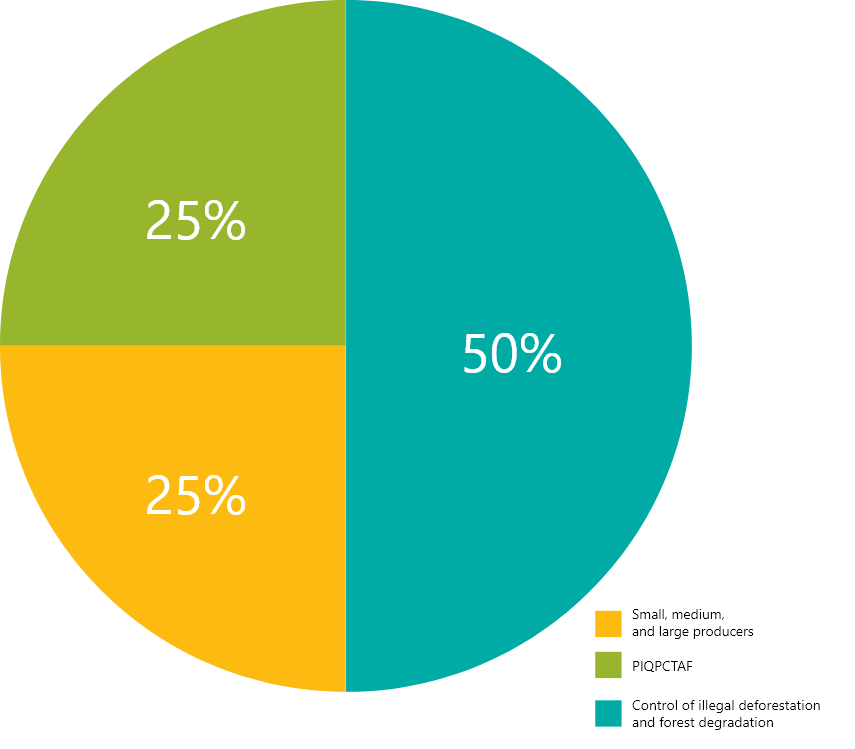Indigenous
Peoples
Quilombola, Traditional Peoples and Communities
Family
Farmers
Conducted using the stock-flow methodology, the initial analysis suggests that an equitable and effective distribution of resources from the sale of jurisdictional carbon credits should allocate 50% of the resources to efforts to control illegal deforestation and forest degradation by the State government. The remaining 50% would be distributed equally among Indigenous peoples, quilombolas, traditional peoples and communities, and family farmers (PIQPCTAFs), and small, medium and large producers in the agriculture and livestock sectors.
Three Subprograms will be created to serve each beneficiary category, which will be financed with the respective percentages of revenue from the sale of jurisdictional credits.
The benefit sharing proposal and the design of the subprograms will undergo a comprehensive public consultation process, with the participation of all interested parties to gather suggestions for improving the strategy and subprograms presented.
After the public consultation process, the final text of the benefit sharing strategy and subprograms, including the adjustments to be made after the interested parties have expressed their views, will be submitted for discussion and approval by the State Environmental Council (COEMA), the consultative and deliberative body of the governance system of the Jurisdictional REDD+ Program of the State of Tocantins.
